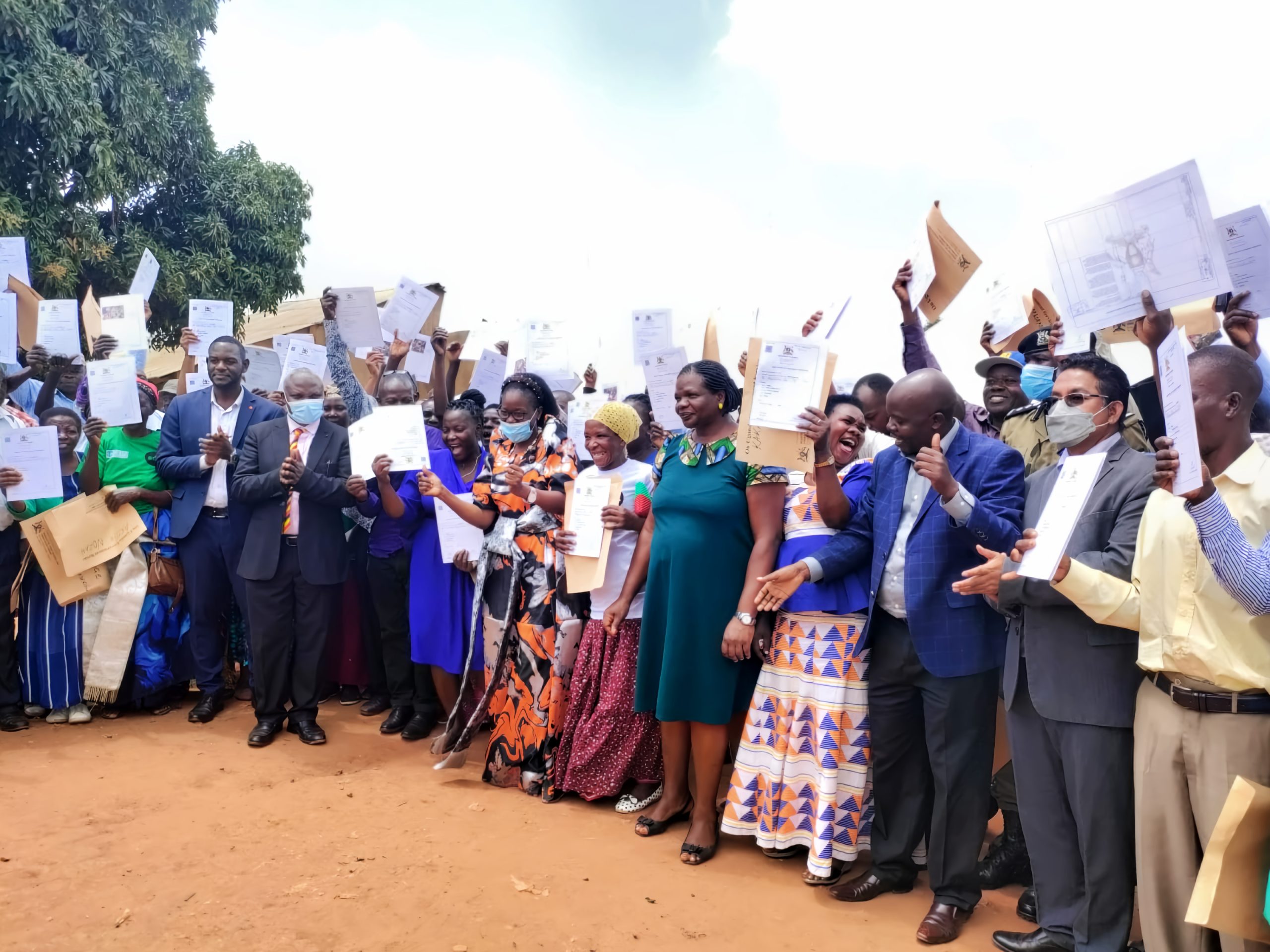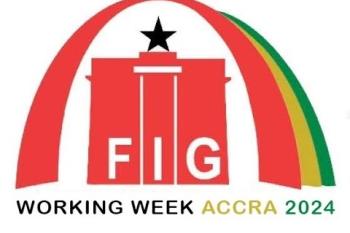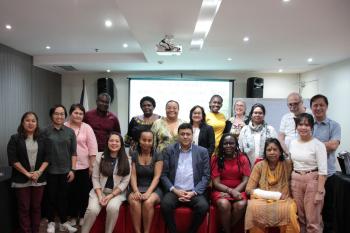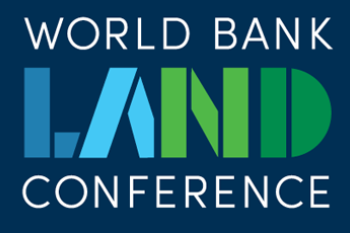
Recognizing slum dwellers’ land rights in Uganda
 Beneficiaries of the Certificates of Customary Ownership in Mbale celebrate the recognition of their land rights.
Beneficiaries of the Certificates of Customary Ownership in Mbale celebrate the recognition of their land rights.
Uganda is currently experiencing unprecedented levels of urbanisation, and as such more than 60% of this urban population is resident in the slums without formalised and documented land rights. The lack of tenure security in the slums evidenced through increased land disputes and threats of eviction greatly affects productivity, investment and effective utilization of the land. In 2018, UN-Habitat and Global Land Tool Network partnered with the Government of Uganda, ACTogether Uganda and other partners to implement a project to improve land tenure security for urban households in informal settlements- particularly women, youth, and vulnerable groups - in select neighbourhoods in Mbale City. “The Government of Uganda approved the National Slum Upgrading strategy and action plan in 2008 that provides the need to implement actions to protect the slum dweller and the urban poor through titling their land and ensuring that all titles have roads to ease service delivery,” said the minister. “Mbale is the first city in the country to issue CCOs in urban areas as provided for under the land law,” Nabakooba said. The assistant senior town Clerk, Agnes Nandudu appealed to the residents to be careful of land grabbers that come as money lenders. “If you want to use your title to borrow money, use formal financial institutions and not money lenders who could grab your land,” advised Agnes. Sarah Nambozo, National Slum Dwellers Federation (NSDF) coordinator Mbale region, revealed that the project has allowed the authorities and slum communities to initiate dialogues for inclusive planning. "The council now uses data collected by slum dwellers for planning purposes, and it is community data," said Nambozo. “Land is a foundation of everything and Mbale is pioneering the experience of certificates of customary ownership in Urban areas for other municipalities and towns to learn from,” Mr. Danilo Antonio, Programme Management Officer for UN-Habitat/GLTN said. Denis Obbo, the Ministry of Lands, Housing and Urban Development (MLHUD) spokesperson mentioned that CCOs data would be integrated into the National Land Information System. “The CCO will help me get protection from land grabbers. We have been living at the mercy of the rich,” comments Celenenti Walayo, 93 -one of the CCO beneficiaries. Building on the lessons, experiences and partnerships of the pilot project, the project will be scaled-up to other areas of Mbale and Lira Cities with an additional component on tenure responsive land use planning. Article also available on UN-Habitat website.


